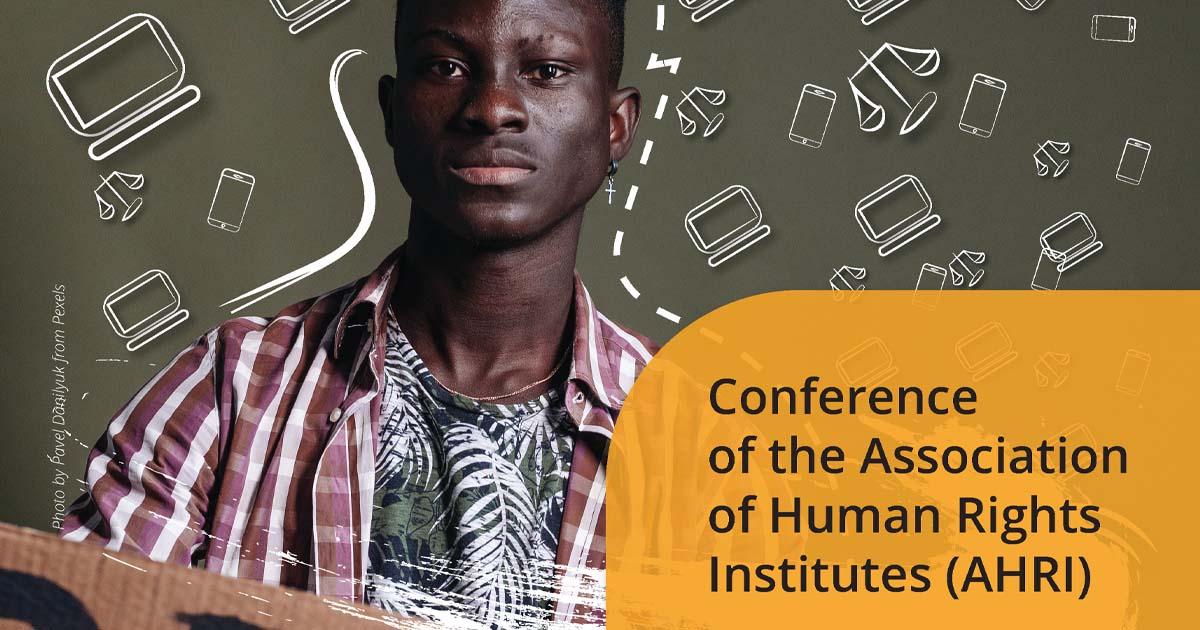Technological developments have made what was once science fiction reality. This gives some hope for a utopian future while others get nightmares. It also highlights the extent to which technologies that are not explicitly designed with human rights and equity in mind have tremendous potential to do harm.
In most societies companies monitor and monetize our activities online for profit and governments have tremendous capacity to monitor us both online and in the physical world. They generally do so in the name of public safety, but often with the goal of silencing dissenting voices and preventing people from organizing for structural changes within the economy and society.
COVID-19 has led to misery around the globe but also illustrates how technological developments can make a difference, most significantly through the rapid developments of vaccines. However, there are serious inequities in making the fruits of technological developments such as vaccines globally available. COVID-19 has been not only a medical pandemic but also an inequality pandemic. The climate crisis also highlights global inequalities which equitable access to technological developments could potentially mitigate.
Accountability and public participation are central to the human rights project. Technological developments such as artificial intelligence has the potential to make justice systems more efficient, but human control remains essential. Technological advances are frequently used in elections and other forms of political participation but have often been challenged.
Abstracts
We have only highlighted a few issues that technological developments pose to human rights now and in the future. We invite anyone interested in these and related issues to send an abstract or panel proposal for consideration under the following tracks:
Track 1: Surveillance and vulnerability
Track 2 Survival and sustainability
Track 3: Democratic participation and accountability
Abstracts on other human rights topics may also be submitted.Abstracts sent by doctoral students will be considered for tracks in the main conference but may also be selected for the doctoral workshop held on 1 September 2022; the day before the start of the main conference. Abstracts should be maximum 300 words and submitted together with a max 100-word bio via Submittable.
The deadline for submission of abstracts is 31 March 2022. Please indicate at the end of your abstract or panel proposal whether you intend to present in person or online. Selected presenters will be notified by 30 April 2022.
Limited funding for attendance in person may be available. If you would like to present in person, please indicate whether your personal attendance would be dependent on financial support from the organisers of the conference and, if such support will not be possible, if you would like to be considered for online presentation.
Conference website
The conference website will soon be available via www.chr.up.ac.za
Important dates
- Deadline for submission of abstracts and panel suggestions: 31 March 2022
- Registration opens: 31 March 2022
- Notification of selected abstracts and panels: 30 April 2022
Venue
The conference will take place at the Future Africa Campus, University of Pretoria on Friday 2 September and Saturday 3 September 2022. A doctoral workshop will be held on the main campus of the University of Pretoria on Thursday 1 September 2022. All events will be hybrid meaning participants can join in person or online.
The closest airport to Pretoria is OR Tambo International Airport from which participants can take the Gautrain to the Hatfield station. Alternatively, you can book a shuttle to take you from the airport to your hotel. Participants can also book rooms at the Future Africa campus, www.futureafrica.science/index.php/campus/hotel-accommodation or in Hatfield.
Enquiries
Prof Magnus Killander, magnus.killander@up.ac.za
Organisers
The AHRI 2022 conference is organised by the Centre for Human Rights, University of Pretoria, South Africa, in collaboration with the Center for Human Rights Science, Carnegie Mellon University, Pittsburgh, United States, and the Association of Human Rights Institutes (AHRI).
The Centre for Human Rights, University of Pretoria, is an internationally recognised university-based institution combining academic excellence and effective activism to advance human rights, particularly in Africa. It aims to contribute to advancing human rights, through education, research and advocacy.
The Centre for Human Rights Science at Carnegie Mellon University advances human rights by harnessing the power of science and technology for those fighting against inequities and abuses of power. It facilitates partnerships between academic researchers and human rights practitioners and provides technical assistance to individuals and organizations devoted to human rights.
AHRI is a network of over 80 institutions that carry out research and education in the field of human rights across every continent. The objective of AHRI is to promote research, education and discussion in the field of human rights.

